Sustainable polymers – BASF Secures Long-Term Access to Bio-Based 1,4-Butanediol (BDO) through QIRA 23-09-2023
Sustainable polymers
Pyrowave Introduces Nanopurification Technology: A revolutionary short-loop chemical recycling innovation to remove toxic additives and contaminants in plastics
On the sideline of the Chemical Recycling Europe Forum 2023, Pyrowave is proud to introduce its revolutionary Nanopurification Technology. Applied to plastic waste, this technology operates at the molecular level to remove contaminants from polymers with perfect control on purified resins. It specifically addresses a challenge faced by most plastic waste recyclers including advanced recycling: the presence of contaminants in plastic waste and in pyrolysis oil.In a world grappling with the growing concern of plastic pollution, one of the limiting factors caping the scaling of plastic recycling is the inability to secure feedstock compatible with level of purity required in end applications. Notably, a recent United Nations report has highlighted the challenges of handling hazardous chemicals present in plastics – additives and contaminants that represent major concerns to human health and the environment. Sustainable polymers
Pyrowave’s solution offers a plastic waste pre-treatment to purify the resins that can be used in advanced recycling methods sensitive to contaminants, or directly into final applications. This breakthrough approach has the potential to expand the range of recyclable plastics, including plastics with various contaminants and additives such as heavy metals, inorganic pigments, halogens, and flame retardants.
“We cannot sit and do nothing as the plastic pollution crisis escalates and the recycling rates are barely improving”, says Jocelyn Doucet, CEO of Pyrowave. ”As a pioneer of this industry, we are addressing the key challenge limiting the scaling of advanced recycling techniques by providing a groundbreaking nanopurification technology that will be driving real change for a cleaner, healthier planet.’’ says Jocelyn Doucet, Co-founder and CEO, Pyrowave. Sustainable polymers
Revolutionizing recycling: How Nanopurification Works
Pyrowave’s nanopurification methodology draws inspiration from pharmaceutical purification technologies, capitalizing on the significant size disparity between polymers and most additives found in the compounds. The technology tables on the large difference in size and solubility to separate additives from polymers using the most advanced nanofiltration membranes. Unlike conventional dissolution methods reliant solely on solubility, Pyrowave’s patent-pending technology enables simultaneous removal of various contaminants, all while maintaining meticulous control over the endpoint. It results in a process that is simpler, tailored to our clients’ specifications, more energy efficient and economical.
Pionneering a Greener Future
To debottleneck the access to plastic feedstock, Pyrowave standardizes the material upstream to be compliant with most advanced recycling process. In addition, the purified product can also be used directly in end-applications. Pyrowave has successfully demonstrated this technology by decontaminating polymers and supplying high-quality recycled plastics to industries requiring strict compliance, including food-contact applications. Sustainable polymers
The innovation can be used as a stand-alone to purify various plastic waste feedstocks or as a pre-treatment upstream of its microwave depolymerization process, for example.
Powered by electricity, Pyrowave’s new technology is low-carbon with approximatively 95% GHG emissions reduction compared to the virgin production of resins, and produces 100% traceable resins. Pyrowave’s solution enables higher recycling rates, less harmful substances in the environment and less GHG emissions than needed to produce virgin plastics. Pyrowave’s innovation holds the promise of reshaping the plastic recycling landscape by addressing head-on the pressing environmental issue of toxic contaminants in plastics.
Backed by over 10 years of experience, Pyrowave is eager to collaborate with like-minded partners to build a sustainable and circular economy that maximizes the value of plastic waste. Reach out today to learn more about Pyrowave’s nanopurification technology.
Contact
Mathieu Pagé
Public Relations Advisor
Pyrowave
mpage@pyrowave.com
Cell.: 1-438-227-8344 Sustainable polymers
BASF Secures Long-Term Access to Bio-Based 1,4-Butanediol (BDO) through QIRA
BASF has inked a significant agreement to secure enduring access to QIRA bio-based 1,4-butanediol (BDO) from Qore LLC, a joint venture between Cargill and HELM AG.
This collaboration solidifies BASF’s commitment to sustainability, with Qore set to manufacture bio-based BDO at Cargill’s cutting-edge biotechnology campus and corn refining facility in Eddyville, Iowa. QIRA, the brand under which Qore produces this bio-based BDO, is derived through the fermentation of plant-based sugars sourced from field corn. It will match the quality standards of fossil-based BDO, maintaining identical specifications.
QIRA is an ideal drop-in solution, facilitating a rapid and seamless transition for the industry towards more sustainable alternatives, as noted by Jon Veldhouse, CEO of Qore: “By switching to QIRA, the product carbon footprint (PCF) can potentially be reduced by up to 86% compared to fossil-based BDO.” Sustainable polymers
Through the adoption of QIRA, BASF gains the ability to manufacture BDO derivatives with a lower PCF than their fossil-based counterparts. Furthermore, BDO derivatives based on QIRA exhibit equivalent physical and technical properties compared to those originating from fossil-based BDO. Commercial quantities of these bio-based products are anticipated to be available in the first quarter of 2025.
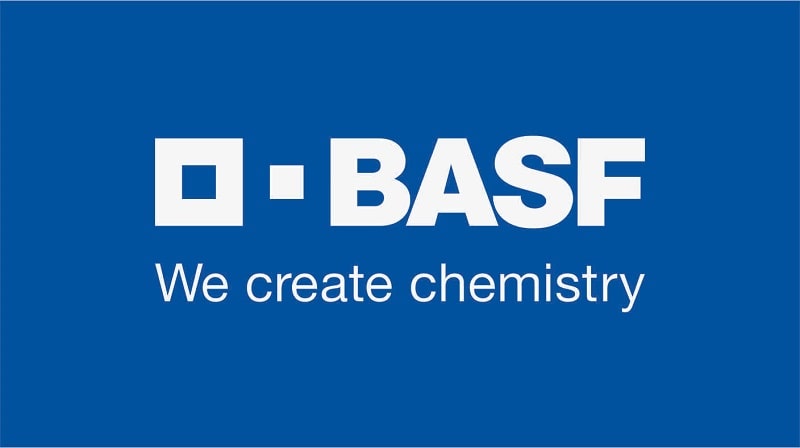
Teknor Apex relaunches Terraloy sustainable polymers
Responding to market demands for sustainable compounds, Teknor Apex is relaunching its Terraloy brand in a dedicated effort to build up a portfolio of products that will meet the challenges of today’s rapidly changing industry.
businessman holding circular economy icon Circular economy concept for future business growth and environmental sustainability and reduce pollution for future business and environmental growth.
The portfolio will include polymers, additives and fillers covering a broad range of sustainable attributes such as recycled, bioderived, and biodegradable content. As the portfolio evolves, it will include credible products with verifiable carbon footprint and LCA data. Sustainable polymers
Back in 2015, Teknor Apex received two awards for the Terraloy technology: the “Innovation in Bioplastics Award” from SPI: The Plastics Industry Trade Association; and the “Bioproduct Innovation of the Year Award” from Ohio State University’s OBIC Bioproducts Innovation Center. It was this same year that the United Nations created a shared blueprint for peace and prosperity for people and the planet: The UN Sustainable Development Goals (SDGs). These goals, supported by Teknor Apex initiatives, promote a global partnership to improve health and education, reduce inequality and stimulate economic growth – all while addressing climate change and working to preserve our environment.
“As a company that participates in many plastic recycling initiatives and sustainable activities, we are keenly focused on our mission of people and our planet being at the centre of our purpose. Sustainable polymers
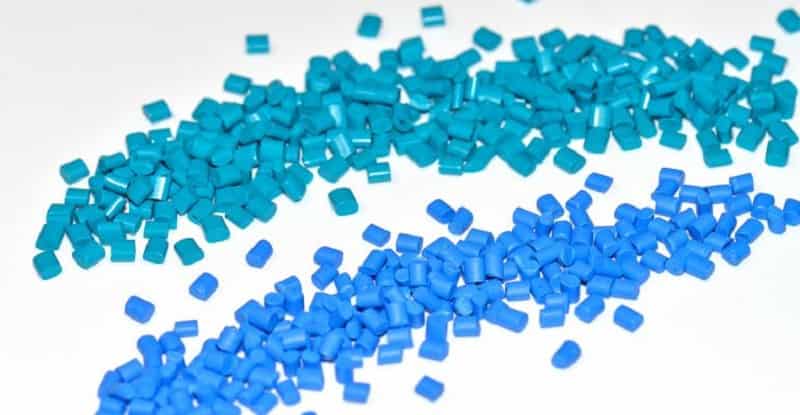
‘Mass balance is of utmost importance’
In its ‘Let’s talk about Chemical Recycling” series, the Plastics and Rubber Machinery division of the German VDMA association talks to experts and stakeholders active in the chemical recycling space. In response to skeptics about the technology, Markus Klatte, founder and Managing Director of Arcus Greencycling Technologies GmbH would like them to realise that ‘only with all the technologies at our disposal will we be able to complete the massive transformation to a circular economy’.
“Considerably more fossil oil would be consumed without mass balance,” he said.
Mr. Klatte, Arcus commissioned an industrial plant for chemical recycling at the beginning of the year. What are its unique qualities?
By utilising our technology, we can produce a pyrolysis oil from strongly mixed plastic waste that also contains polymers such as PVC, PET, ABS and many others.
We process the plastic waste the way it arrives from a waste sorting plant or from partners in industry. We are looking to recycle everything that would otherwise go into incineration. When the material is processed by our pyrolysis, unwanted contaminants such as chlorine or titanium dioxide are separated and put into a sink. Sustainable polymers
Condensable gases and non-condensable vapours are then produced in the gas phase. The condensable gases eventually become the pyrolysis oil. We operate our combined heat and power unit with the filtered, non-condensable gases, which renders our technology virtually energy self-sufficient. In the long run, there will also be a secondary market for residual materials; however, a lot of research still needs to be done in this respect.
With an annual capacity of 4,000 tonnes, it is quite a small plant.
Through our demonstration plant in the Frankfurt-Höchst Chemical Park, we can offer proof that industrial use works. We are still conducting a lot of tests. There are 650 measuring points at our plant that provide data, for example on energy requirements. In addition, the purpose of the plant is to test material flows that have not yet been researched, and to determine what can be recycled and what cannot.
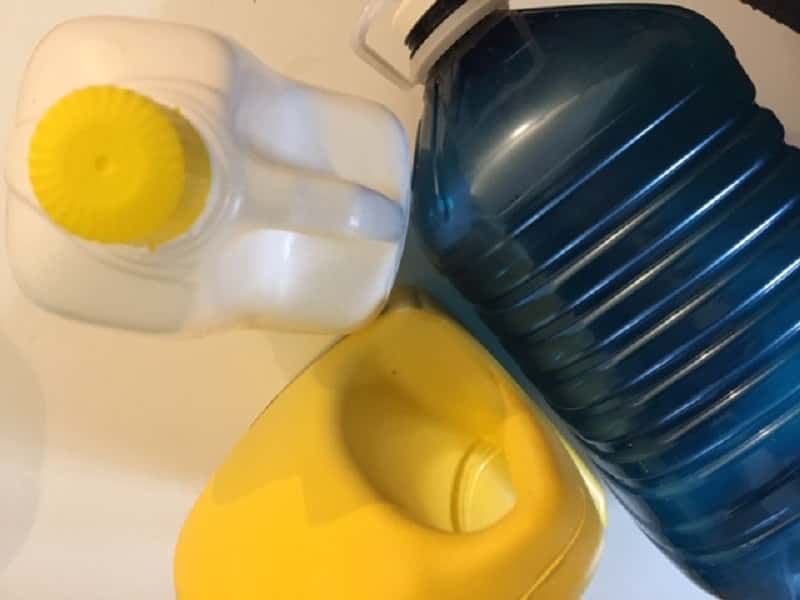
Danimer Scientific and Chevron Phillips Chemical Expand Collaboration for Rinnovo™ Polymer Applications
Danimer Scientific, Inc., a leading company specializing in next-generation bioplastics, with a focus on developing and producing biodegradable materials, has announced the expansion of its collaboration with Chevron Phillips Chemical (“CPChem”). This extended partnership aims to delve into the development and commercialization of various high-volume polymer applications, leveraging the cost-effectiveness and performance advantages offered by Rinnovo™ materials. Sustainable polymers
Rinnovo™ is a specific type of polyhydroxyalkanoate (“PHA”) derived from lactones, synthesized using Danimer’s proprietary Novo22™ catalyst technology. These PHAs can be utilized to produce eco-friendly alternatives to traditional plastics. The expanded collaboration builds upon Danimer and CPChem’s previous agreement, which involved Danimer evaluating CPChem’s loop slurry reactor design for the continuous manufacturing of Rinnovo™.
Stephen E. Croskrey, the CEO of Danimer, expressed enthusiasm about the ongoing partnership with CPChem, stating, “Our collaboration with CPChem has consistently delivered positive outcomes, and we are excited about the new opportunities on the horizon. Sustainable polymers
CPChem’s Research and Technology lab in Bartlesville, Oklahoma, boasts a world-class team and facility, which we believe will expedite the integration of Rinnovo™ materials into high-volume applications, ultimately reducing costs in key markets.”
CPChem’s Bartlesville facility, established in 1950 by Phillips 66, is equipped with state-of-the-art research equipment for rapid product testing under various processing conditions. Furthermore, the facility’s advanced testing and analytical capabilities facilitate quicker feedback loops, thereby expediting the development and optimization of resin formulations.
Venki Chandrashekar, CPChem’s Vice President of Research and Technology, expressed ongoing excitement about the potential of their MarTECH® process technology and related collaborations to advance Danimer’s Rinnovo™, emphasizing its role in accelerating sustainability efforts. Sustainable polymers
For more information on Danimer Scientific, please visit www.DanimerScientific.com.
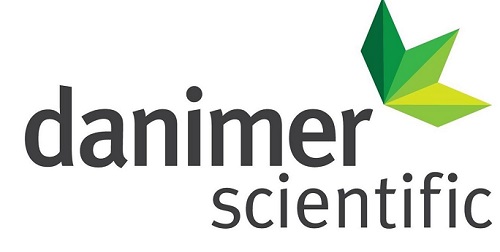
Swedish Plastic Recycling has unveiled its plans for the grand opening of the Site Zero recycling plant, which is being hailed as the world’s largest and most advanced facility for recycling plastic
This momentous event is scheduled for November 15th and marks a significant milestone in the quest to revolutionize plastic recycling.
Spanning an impressive 60,000 square meters, Site Zero boasts an annual capacity to process 200,000 tons of mixed household plastic packaging while achieving a sorting speed of 1,000 pieces of packaging per second. This remarkable feat is made possible through the utilization of sixty Near-Infrared (NIR) sensors, cutting-edge laser technology, and advanced camera systems. Sustainable polymers
Swedish Plastic Recycling has invested one billion SEK between 2019 and 2023 to bring this vision to life, and the results have been nothing short of sensational. Site Zero has demonstrated the ability to separate and recycle up to twelve different types of plastics simultaneously, a stark contrast to other European plants, which typically handle just three or four types. As a result, it is anticipated that virtually all plastics in the Swedish packaging market can now undergo treatment and be reintegrated into a circular economy.
Mattias Philipsson, the CEO of Swedish Plastic Recycling, expressed his enthusiasm, stating, “Site Zero surpasses all expectations; we are ushering in a new era of plastic recycling. This plant will serve as the driving force behind the global transition needed to significantly reduce climate impact, diminish our dependence on fossil plastic raw materials, and fully integrate plastics into a circular economy.”
The grand opening is set to attract visitors from across Europe, and an on-site press conference will be held to share the remarkable recycling results and insights gained during the testing phase, among other key information. Notable attendees will include representatives from the Swedish Environmental Protection Agency, TOMRA, and various players from Sweden’s food trade industry. Sustainable polymers
From its inception in 2021, the Site Zero project has aimed for complete climate neutrality. The plant is powered entirely by renewable energy sources, and any plastic that cannot be recycled will be directed toward Carbon Capture Storage (CCS) or energy recovery methods that produce no climate-harming emissions.
Meanwhile, in Sweden, Tetra Pak and Axjo Group are jointly exploring the feasibility of constructing a new recycling plant designed specifically for the polyAl layers found in carton packages. This facility is expected to have an annual recycling capacity of 10,000 tonnes.
Additionally, a new recycling plant specializing in the challenging task of recycling soft plastics recently opened in Scotland earlier this year. This facility, co-owned by supermarket chain Morrisons and operated by Yes Recycling, aims to prevent the export of end-of-life plastics and, instead, repurpose an impressive 15,000 tonnes of post-consumer packaging annually. Sustainable polymers
Furthermore, Amcor and Mondelēz International have committed to investment agreements in support of Licella’s construction of one of Australia’s first advanced recycling facilities. This facility is set to process 12,000 tonnes of end-of-life plastics each year, contributing to the global effort to address plastic waste challenges.
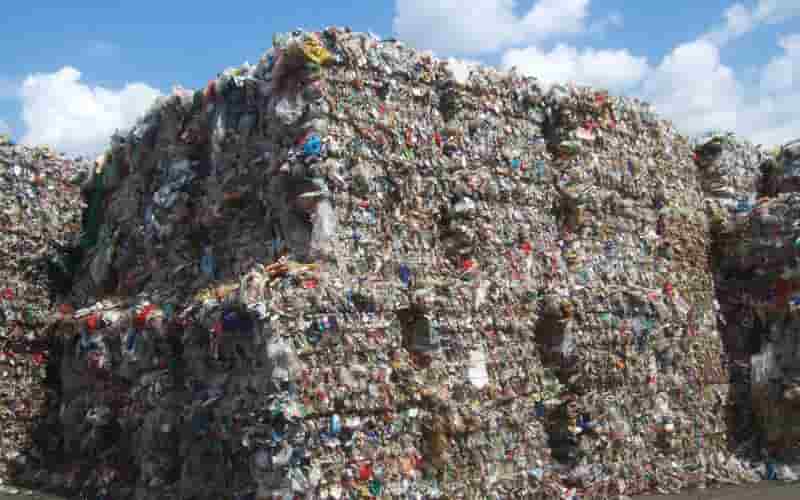
Greenback Recycling Technologies has successfully completed the acquisition of Enval, a renowned specialist in the recycling of laminated plastics
The financial details of this transaction remain confidential. Following this merger, the united entity will be led by Philippe von Stauffenberg, the CEO of Greenback.
Both companies have amalgamated their efforts in the domain of plastics recycling. This move comes on the heels of the inauguration of a groundbreaking recycling facility in Cuautla, México, which utilizes Enval’s innovative microwave-induced pyrolysis technology, as depicted in the accompanying image. Sustainable polymers
Enval, initially established as a spin-off from Cambridge University in 2006, made significant strides in the recycling sector. In 2013, it launched its inaugural commercial-scale plant for recycling laminated plastics and aluminum in Luton.
The newly formed company under Greenback’s leadership will prioritize the recycling of challenging post-consumer plastic packaging waste. Additionally, it aims to supply raw materials for the production of new food-grade packaging containing recycled content.
Philippe von Stauffenberg stated, “Through the groundbreaking microwave-induced technology developed by Enval, we can convert flexible plastics into pyrolysis oil, known as π-Oil, which serves as a valuable resource for creating new food packaging with recycled materials. Furthermore, this process enables the recycling of another precious resource, aluminum, when found in multi-layered flexible packaging. This merger signifies a significant milestone for both Greenback and Enval, and we eagerly anticipate the opportunities it will present.” Sustainable polymers
Carlos Ludlow-Palafox, CEO of Enval, expressed, “For a considerable period, we have closely collaborated with Greenback on the construction of the Mexican plant, and this merger solidifies that partnership.” He highlighted that the synergy between Enval’s proficiency in chemical recycling and Greenback’s operational and business development acumen would contribute significantly to mitigating plastic pollution, both on land and in marine environments.
Greenback, headquartered in the United Kingdom, was founded by Philippe von Stauffenberg in 2018. The Mexico facility was established in collaboration with Nestlé and garnered support from the Alliance to End Plastic Waste.
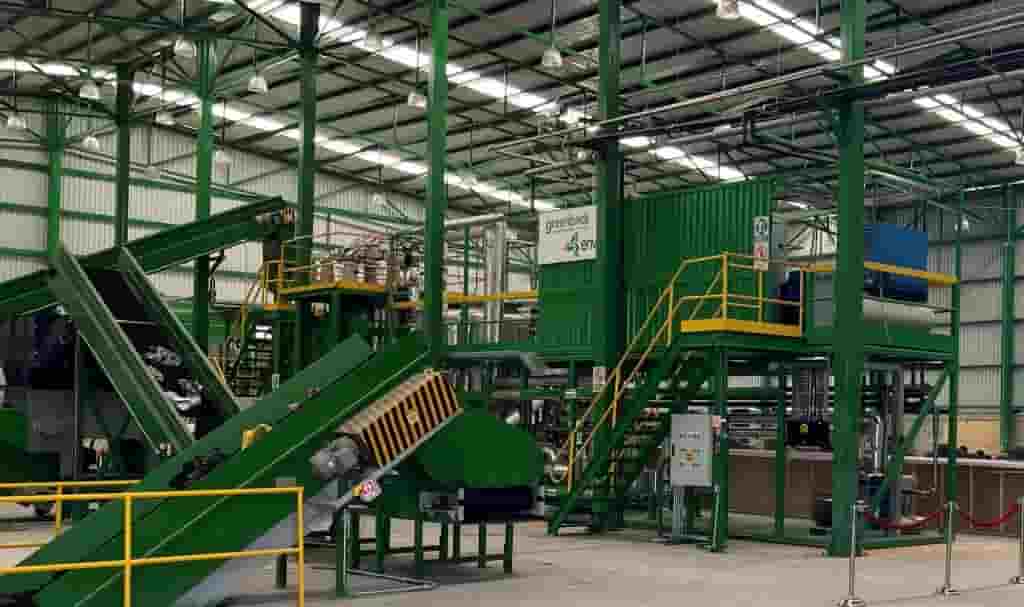
Sustainable polymers
